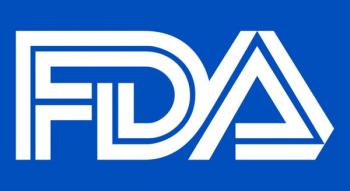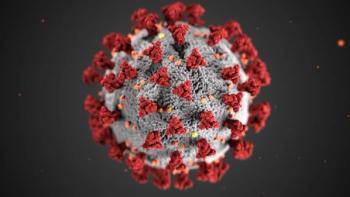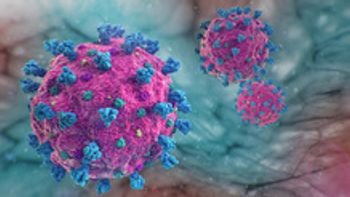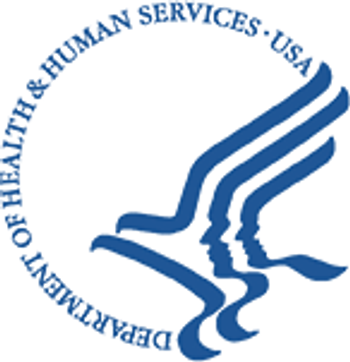
The nearly $19 million boost comes after the Inflation Reduction Act extended enhanced premium tax credits for ACA marketplaces policies through 2025.

The nearly $19 million boost comes after the Inflation Reduction Act extended enhanced premium tax credits for ACA marketplaces policies through 2025.

Twenty percent of nurse managers are considering leaving the profession, and amid unprecedented burnout and turnover among nurses at all levels, there’s increased urgency for healthcare organizations to develop a formal nurse manager succession plan

Back from a brief hiatus, MHE brings you a brand new episode of Tuning In to the C-Suite podcast where Editor Briana Contreras had the pleasure of speaking with Lissy Hu, president of Connected Care Networks at WellSky. Lissy and Briana discussed the shift to home-based care and where it stands after becoming much more of a norm three years into COVID-19. They also addressed the benefits and challenges of home-based care from a payer and patient’s perspective, as well as the cost of this service as its demand rises.

Sarah Raaii, co-chair of McDermott Will & Emery’s multidisciplinary post-Roe team, and Cat Duffy, policy analyst of the National Health Law Program, address the Dobbs v. Jackson Women's Health Organization decision of the U.S. Supreme Court in which the court held that the Constitution of the United States does not confer a right to abortion.

Women traveling out of state for a medication abortion may wind up using telehealth.

CVS Health and United Health Group are also reportedly among the bidders.

There are many misconceptions about healthcare technology, but you can improve your organization’s approach to IT by clearing them up and following these three steps.

In COVID-19 news, Novaxax seeks EUA for vaccine booster. The FDA has approved Bluebird’s $2.8 million gene therapy for blood disease, as well a high-concentration of Hadlima, a Humira biosimilar. The agency has also PDUFA for several products, including Lynparza/abiraterone prostate cancer, Polivy for a blood cancer, and fezolinetant for menopause.

After a failed trial in advanced breast cancer, Sanofi has stopped all studies of amcenestrant, including in early-stage breast cancer.

Shabbir J. Imber Safdar, executive director, Partnership for Safe Medicines, talks about efforts to address counterfeit drugs in the U.S. supply chain.

Sean Dickson of West Health Policy Center discusses Reuters' analysis of drug launch prices.

Opinion piece on the top 5 priorities for managed care by Managed Healthcare Executive Editorial Advisory Board Member, Don Hall, M.P.H.,principal of DeltaSigma, LLC.

Interviews with people with myeloproliferative neoplasms show almost all of them often feel fatigued — and that they must manage the problem on their own.

The new report is believed to be among the first to examine cardiovascular risk in myeloproliferative neoplasms through a genetic lens. Mutations in the CALR gene may restore vascular dysfunction in some patients.

The new model starts in July 2023. Practices will be required to take on two-sided risk right from the start.

In a busy week, the FDA has approved additional indications for Enhertu, Myfembree and Nubeqa, as well as a tablet form of Calquence. The agency also approved Xofluza for children, issued an EUA for monkeypox vaccine in children, extended the review of omaveloxolone, set up advisory committee meeting for microbiota-based C. diff therapy, and priority review for elacestrant in breast cancer. Additionally, Novaliq submited NDA for dry eye treatment.

Investigation into additional agents to treat patients with COVID-19 through the I-SPY COVID Trial is ongoing.

Biomarkers may help identify acute graft-versus-host disease patients who could be treated with alternatives to corticosteroids.

In this second part of a two-part video series, Nathan Allen, Senior Vice President – Healthcare Provider Solutions at Firstsource, discusses Medicaid Redetermination for those who are Medicaid members, but are deemed to lose their coverage due to the upcoming expiration of COVID-19’s Public Health Emergency. Allen set a scope on Medicaid populations in rural settings and how they could be affected. However, there is hope through tech-based solutions and a proposed rule by CMS to prevent facility closures and preserve access to care for all affected Medicaid populations.

Nathan Allen, Senior Vice President – Healthcare Provider Solutions at Firstsource, discusses Medicaid Redetermination for those who are Medicaid members, but are deemed to lose their coverage due to the upcoming expiration of COVID-19’s Public Health Emergency.

Biomarkers can be used for many purposes — diagnosis, prognosis, projections for success of a treatment. Sophie Paczesny, M.D., Ph.D., a professor at the Hollings Cancer Center at the Medical University of South Carolina and an internationally recognized expert on biomarkers for graft-versus-host disease (GvHD), reviews a typology of biomarkers that groups them into five subtypes and discusses their use in GVHD.

What is a biomarker? Sophie Paczesny, M.D., Ph.D., a professor at the Hollings Cancer Center at the Medical University of South Carolina and an internationally recognized expert on biomarkers for graft-versus-host disease (GvHD), explains.

A rise in the number of long COVID is sparking research efforts by the HHS, the CDC and drug companies to understand the conditions and develop treatments.

Patients with persistently controlled atopic dermatitis (AD) who had their doses reduced were able to maintain their low disease activity.

Patients with chronic rhinosinusitis with nasal polyps had the greatest number of outpatient visits and the shortest time between visits.

Confirmed cases of monkeypox in the United States have reached more than 7,500, according to the CDC.

Pharma, health insurers square off about the healthcare provisions in the Inflation Reduction Act that passed the Senate yesterday. The PhRMA was sharply critical of the provisions that would empower CMS to negotiate the prices of a selected number of drugs. AHIP praised the extension of more generous ACA premium subsidies.

The Inflation Reduction Act also allows Medicare to negotiate prices on some drugs and caps out-of-pocket costs for Medicare beneficiaries.

Due to one of the most challenging global crises in living memory and one that presented an acute challenge for the medical community, healthcare providers find themselves operating within an uncertain landscape. They are still managing the fallout of COVID-19 while also planning for the future.

The FDA has made several approvals this week, including Enhertu for HER2-low breast cancer, a steroid-free cream for plaque psoriasis and the first interchangeable biosimilar to Lucentis, as well as Stelara in children with psoriatic arthritis. The agency has issued a complete response letter for Nuplazid in Alzheimer’s psychosis. Regulators have accepted a BLA for a biosimilar of Actemra and scheduled a second advisory committee meeting for AMX0035 in ALS.